When it comes to fisheries and aquaculture policies and data collection, the rights and needs of women are ignored. This reinforces the invisibility of women. Some countries do have national gender policies but guidelines for their implementation are lacking and poorly funded. The Small Scale Fisheries Guidelines of the Food and Agriculture Organization (FAO) set a precedent as the first global policy to include gender equity as a guiding principle. But similar gender equity requirements are lacking in market-based certification and auditing schemes. In most countries, a breakdown of fisheries data by gender is unusual. Where such data is separated by sex, it mainly includes employment numbers only from the catching or farming sector, rather than for the whole catch-to-consumer pathway, thus ignoring the majority of women. But the impacts of policies on women cannot be investigated without data on their roles and inputs. Across the whole life cycle of capture fisheries and aquaculture, women are estimated to represent nearly half of all workers.
CASE STUDIES
- The Code of Conduct for Responsible Fisheries (1995) is a joint agreement led by the FAO. Its more than 50 instruments and technical guides do not mention women and gender.
- In the above document, Sustainable Development Goal (SDG) No. 14 (Conserve and sustainably use the oceans, seas and marine resources) does not reference SDG #5 (Achieve gender equality and empower all women and girls).
- In 2016, FAO fisheries and aquaculture employment statistics were broken out by sex for the first time. From 2009-2014, only 27 % of FAO Member countries reported sex-differentiated employment data for fisheries. Only 33 % reported them for aquaculture.
Philippines
The government agency responsible for fisheries requires that each of its agencies has a gender focal point -- duties for action and reporting to ensure that the central policy of gender equality is implemented at the grassroots level. However, those tasked with managing and implementing focal points typically have no training and little interest in them. In one case, for example, a mandatory 5% budget allocation for a focus on gender was used to fund food and drinks at an outing for staff, rather than for action on inequality.
Women’s fight for basic rights
In many societies, the social norm is to consider women’s work secondary and less important than men’s. Husbands, employers, and even women themselves may view their work as an extension of unpaid household or community work. Women typically earn less pay than men or receive only partial pay given as a couple’s wage. Some women work without any pay at all.
Even when women participate in the traditionally-male roles of fishing and fish farming, they are often denied full rights and benefits. In many places, women are denied access to fishing licenses or fish farm tenure.
To fight for their rights to become legally registered fishers, own fish farm sites, or obtain better terms and working conditions, women have had to organize into advocacy groups. But given that competition between women fish traders in the marketplace is often a stronger motive than collaboration, collective action can be difficult.

Japan
Ama divers, while registered members of Japan’s Fisheries Cooperative Associations, have no say in their fishing rights that are distributed and regulated by the male-dominated Associations.

Spain
Women shellfish gatherers in Galicia have organized collectives to achieve professional status as fishers. Co-governance arrangements with government agencies facilitates sustainable management of shellfish.

Thailand
On shrimp farms, migrant couples from Laos, Myanmar and Northeast Thailand are given a couple’s wage. Women labourers are not considered ‘real workers.’

Cambodia
Women cross-border fish traders have difficulty teaming up to secure their rights. There is strong motivation for individualistic competition in their trading relationships with Thai merchants.

Ghana
Women of some ethnic groups finance fishing vessels and trips, plus process and market their catch, yet have no say in fisheries management. These women are fighting for a voice in fisheries management.
_________________________________________________
The downside of fisheries modernization for women
Governments often embrace policies that help to increase exports, modernize and intensify production, and establish offshore farming. Financial investments by the private sector are gender blind. That is, they do not take gender into account when transforming catch-to-consumer fisheries operations by consolidating, scaling up, centralizing and automating operations. In many of the roles that women play— like manual fish processing and small-scale marketing — women are left without work when their skills and assets are not upgraded to adapt to changes like new processing technologies and cleaner local markets that reduce waste.

Norway
The number of women in aquaculture dropped from 20% in 1990 to 9% in 2010 as many smaller-scale family farms were bought out by larger corporations. With companies amalgamating and operations mechanized and scaled up, local communities faced increasing local unemployment. Many workers were forced to migrate to find work.

Indonesia and Vietnam
As shrimp farms get larger, women's participation shrinks. Even where women are involved, they describe the situation as "high involvement, low benefit.

Thailand
In response to European Union trade rules on illegal, unreported, and unregulated fishing, the Thai government has implemented a new fisheries law that prohibits certain types of inshore fishing gear. In some cases this has led to men fishing in secret with banned traditional gear, supported by wives also shouldering extra burdens to ensure family survival.

Chile
In southern salmon farming regions, some groups of women have taken up factory processing jobs, but many from small-scale fishing communities have not. Some women have resisted the farming industry as it built factories for feeds and processing on local land, claiming large tracts in fjords for fish cages
_____________________________________________
-
THE FISH SECTOR WINS WHEN WOMEN’S CONTRIBUTIONS ARE VALUED
